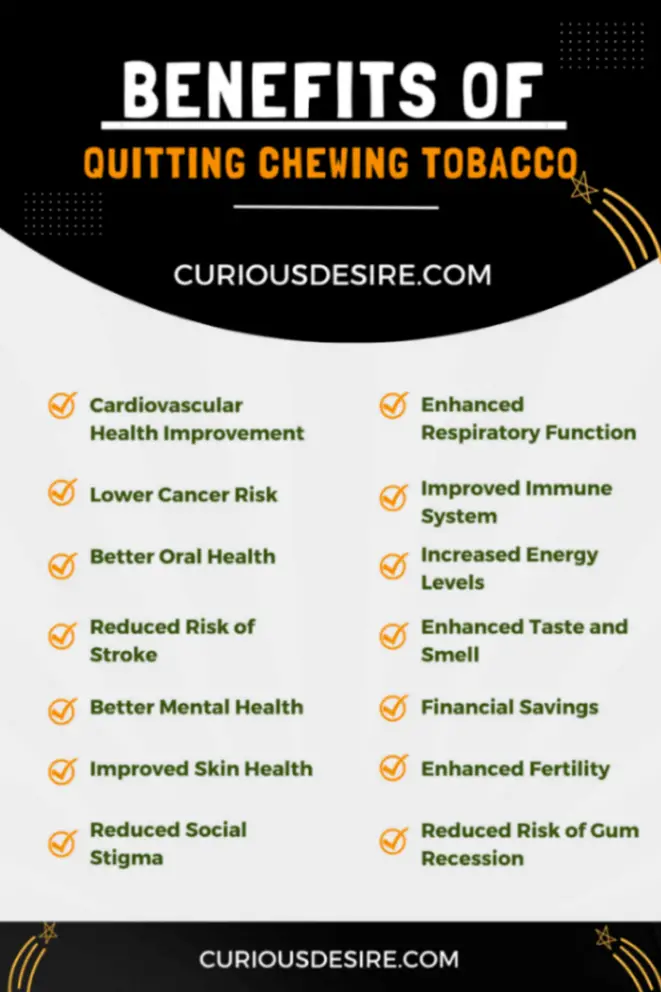Ready to quit chewing tobacco and lead a healthier life? You’re in for a positive journey! In this article, we’re talking about the benefits of quitting chewing tobacco – a decision that goes beyond breaking a habit to unlock health advantages.
From boosting your heart health to enhancing your overall well-being, we’ll guide you through the transformative benefits of making this courageous choice.
So, get ready for a journey towards a healthier you as we explore the convincing reasons why letting go of chewing tobacco is a game-changer for your overall health.
Here are the 5 most common benefits of quitting chewing tobacco:
- Improved Overall Health
- Disease Prevention
- Enhanced Immune Function
- Financial Savings
- Positive Impact on Mental Health
Benefit 1: Cardiovascular Health Improvement
Quitting chewing tobacco positively impacts cardiovascular health by reducing nicotine intake, which, in turn, lowers heart rate and blood pressure.
This cessation allows blood vessels to relax, decreasing the strain on the heart and minimizing the risk of heart disease.
A healthier cardiovascular system ensures efficient blood circulation, supplying the body with oxygen and nutrients without hindering tobacco-related stress.
Improved cardiovascular health significantly lowers the risk of heart attacks and strokes. For instance, someone who quit chewing tobacco experienced a notable drop in blood pressure and cholesterol levels after a year.
This positive change enhances overall well-being and reduces the likelihood of serious cardiovascular issues.
The improved heart efficiency enables a more active and fulfilling lifestyle, free from the potential health hazards associated with tobacco use.
Benefit 2: Lower Cancer Risk
Scientifically, quitting chewing tobacco substantially lowers the risk of cancer. Tobacco contains carcinogens, which are substances that can cause DNA damage and lead to uncontrolled cell growth—characteristics of cancer.
Studies consistently show a direct correlation between tobacco use and various cancers, including oral, esophageal, and pancreatic cancers.
By quitting, individuals reduce exposure to these harmful substances, allowing their body to repair damaged cells and significantly decreasing the likelihood of developing life-threatening cancers.
Embracing a tobacco-free lifestyle not only significantly lowers the risk of developing oral, esophageal, and pancreatic cancers but also promotes cellular repair, normalizing cell growth patterns.
This health improvement contributes to enhanced overall well-being and an increased potential for a longer, healthier life.
Benefit 3: Lower Cancer Risk
Studies consistently demonstrate that tobacco use is a significant risk factor for respiratory issues, including reduced lung function and increased susceptibility to infections.
By quitting, individuals allow their lungs to repair and regenerate, leading to improved respiratory function and a reduced risk of respiratory diseases.





